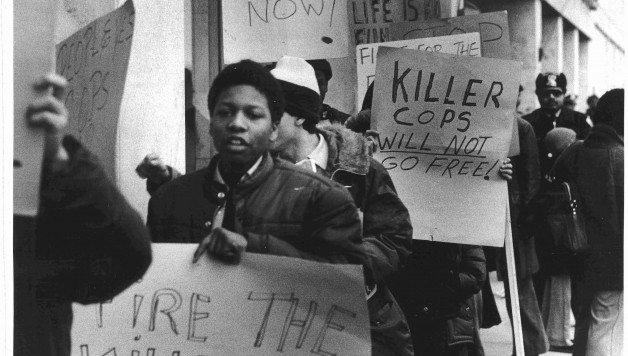
Before a single black person ever set foot on American soil, there was police brutality. Seized from their loved ones, rounded up and herded, and forced to endure the unspeakable cruelties of the Middle Passage, before and from day one, black lives were brutalized, dehumanized, and “kept in their place.”
Despite the Emancipation Proclamation, Reconstruction, Civil Rights Movement, and a black president, some of the same structures are still in place, ones that served to oppress an entire people. In all of the online and media discussions of racism, riots, and police brutality, it’s important to remember, recognize, and raise those voices that continually remind us that our nation continues to exist on a continuum.
The first police forces in black communities were slave drivers and overseers. White “slave patrols” were employed solely for the purpose of policing slaves and capturing runaways. The first “riots” were slave rebellions; leaders like Nat Turner, or slaves armed with hand tools in the 1811 German Coast Uprising, were killed and suppressed by white militias and/or the U.S. armed forces. Drapetomania, long since debunked, was defined as a mental illness that caused black slaves to flee captivity.
This long history of blaming the black victim, dishing out sentences not commensurate to the crime, and holding black lives to a different standard than white ones (where you can lose your life for selling cigarettes illegally, or walking in the middle of the street, or sitting in a car), must come to bear in any discussion of what’s happening in Baltimore, and what happened in Harlem in 1935 (or 1943, or 1964), or 1967 in Newark, or Baltimore in 1968, or any other place in America where African Americans dared to rebel against police brutality, poverty, and being fed up.
In his autobiographical novel, Manchild in the Promised Land, Claude Brown writes of blacks moving from the post-slavery South to the “promised land” of the North, only to find “one of the most important aspects of the promised land: it was a slum ghetto.” Yes, African Americans have made great strides. Yes, there are more African American men in college than in jail. Yes, we have more African Americans in positions of power, on boards and in boardrooms, and signing multi-million-dollar contracts than ever before. Still, the seemingly intractable problem of American racism is one that, until we solve it, will mean that we’re far, far away from a post-racial society.
So, the next time anyone tells you that slavery is over, that those participating in protest—whether it’s violent or peaceful—are “thugs,” remind them of the continuum. This is our history, the ugly blemish on our culture that we seem unable to make go away. Until those in power—both politically and culturally—recognize it for what it is and take steps to help solve the many related issues from the ground up (poverty, lack of opportunity, institutionalized racism…the list goes on), there’s gonna be a whole lotta burnin’ goin’ on.
